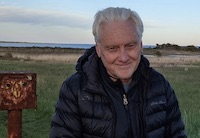Being a young professional in today’s workplace isn’t easy. Being a young Native professional can be even harder, and that’s why mentorship so important for people in the early stages of their careers. Here are a few ways mentors can be effective guides.
Embrace Their Native Heritage
As a mentor, it’s your responsibility to get to know your mentee. Learn about their goals, career aspirations, and other defining characteristics, including education and outside interests. Also, take the time to understand how your Native mentee’s culture and heritage have influenced their professional goals and career path.
Native professionals often feel a strong tie to their communities and want their work to help them give back in some way. For others, while culture and heritage may be a large part of who they are, they may not influence their career goals. Learning about your mentee’s heritage and the potential impact it has on their goals, will help you direct your efforts in supporting them.
Help Them Navigate Being “the Only”
Many Native professionals are the only Indigenous person in the room. This can be intimidating and uncomfortable. As a result, they may feel the need to go above and beyond to dispel stereotypes, which can distract them from their work. As a mentor, you can help them understand that they don’t need to take on the burden of educating their colleagues about Indigenous culture. Instead, encourage them to let their work ethic and high-quality performance speak for them. Modeling this behavior will also help them see firsthand how they can accomplish this.
Be a Connector
Having a professional network is key at all levels, so introduce your mentee to others in their field, as well as to other Native professionals in similar industries who are part of your own network. By serving as the connector, you can provide them with a number of new contacts who can support them on their professional journey.
Be Honest
Being a good mentor means being able to have difficult conversations with your mentee. All young professionals need guidance. They’re going to make mistakes, and the best way to help your mentee is to be honest. Help them understand the mistakes they make and show them what they can do differently the next time.
Be Genuine
Every mentee needs a mentor who will listen, guide, and appreciate their efforts. They also need a mentor who genuinely cares about their growth. When your mentee feels your sincere desire to help guide them on their professional journey, they will respond positively — and be appreciative.
Being a mentor is challenging and not for everyone. Mentoring young Native professionals requires you to think about their whole person, their culture and heritage, and some of the unique experiences they may encounter in the workplace. But doing that means you’ll be able to provide support and opportunities to help your mentees grow as professionals.
 ON TOPIC
ON TOPIC
Dr. Roger Dube, Mohawk, Turtle Clan, and Abenaki, is a Sequoyah Fellow, emeritus professor of physics, and J. William Fulbright Scholar. He received the 2019 Ely Parker Award, the highest AISES honor.
Why is it important for young Native professionals to have a mentor?
Since our numbers are so small, it is especially important that we provide strong and steady support to young Native professionals. Throughout any professional’s career, there will be bumps and awkward events that can be discouraging. This is true for Native professionals as well. When those bumps occur, it’s natural to feel isolated and perhaps even at fault. At those times they need to have someone to call for advice so they don’t get discouraged — there’s nothing wrong with reaching out to a mentor for ideas or even as someone to listen.
Mentors have had a variety of experiences, and the knowledge of how they handled these experiences is of special value. A good mentoring relationship can provide reassurance and advice when someone might need a different perspective. Mentors can also provide helpful advice on specific challenges that young Native professionals might face, potentially avoiding a lot of difficulty that might otherwise arise. Most of us have faced all sorts of adversity and challenges, and we are here to help.
Because there are so few Native professionals in the workforce, it’s highly likely that young Native professionals will feel isolated and out of touch with their broader community. Even though the mentor might not have direct experience with a specific college, university, or business, their presence in times of need can be provided remotely, much like calling home.
Mentoring is our way of giving back, and our way of assuring that our Native professional community will grow. Like a parent, sibling, or tribal member, mentors are interested in the success of the young professional in the long term. Use us!











